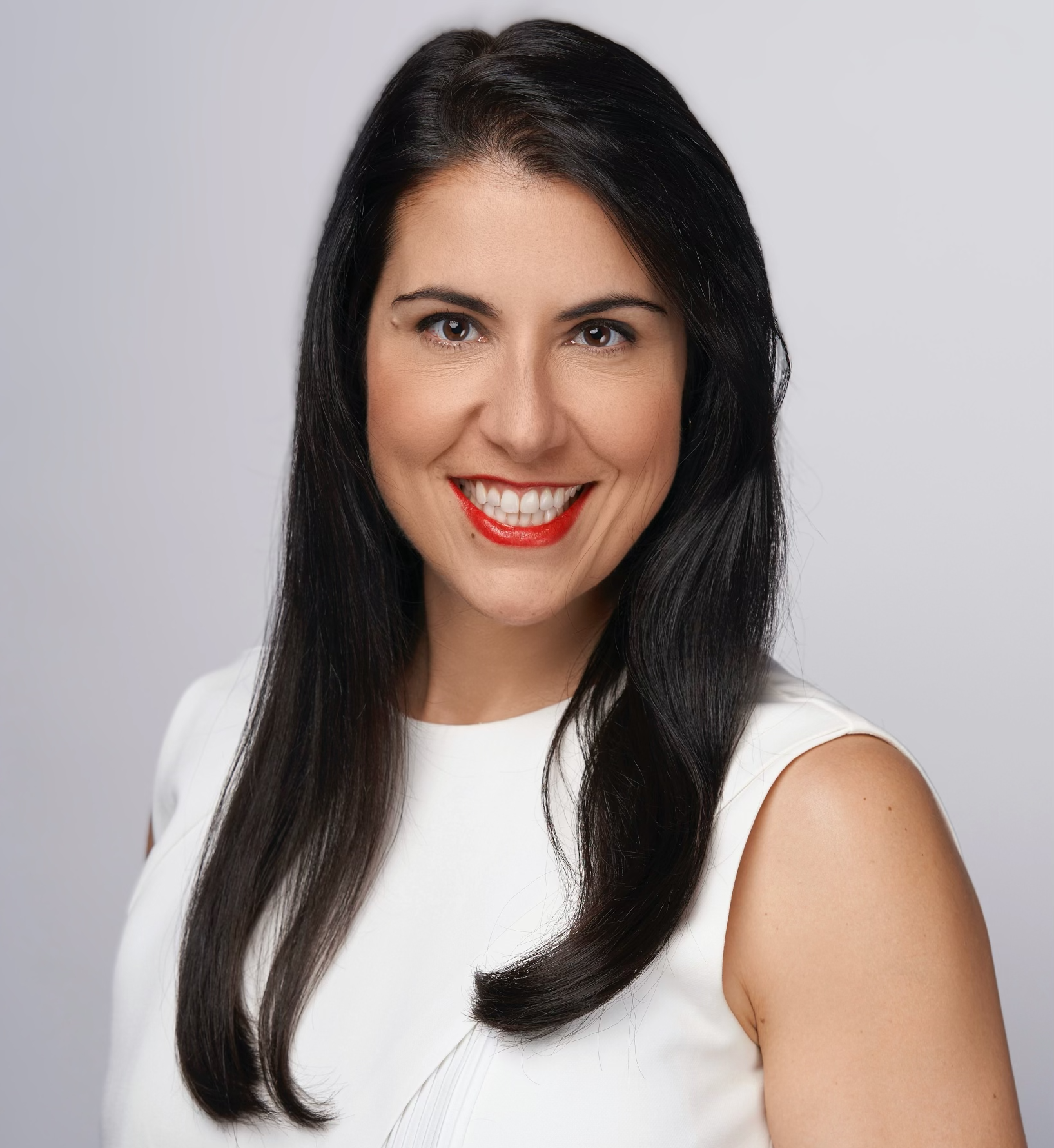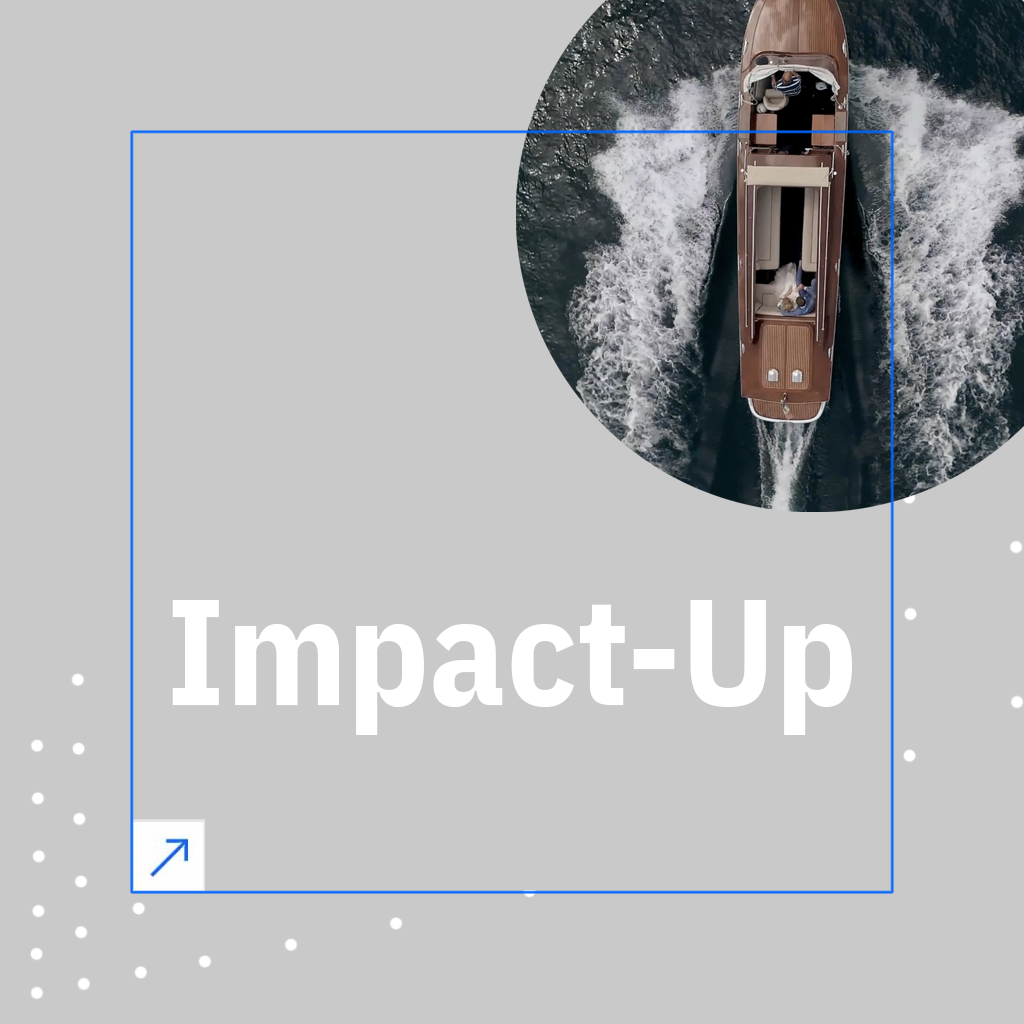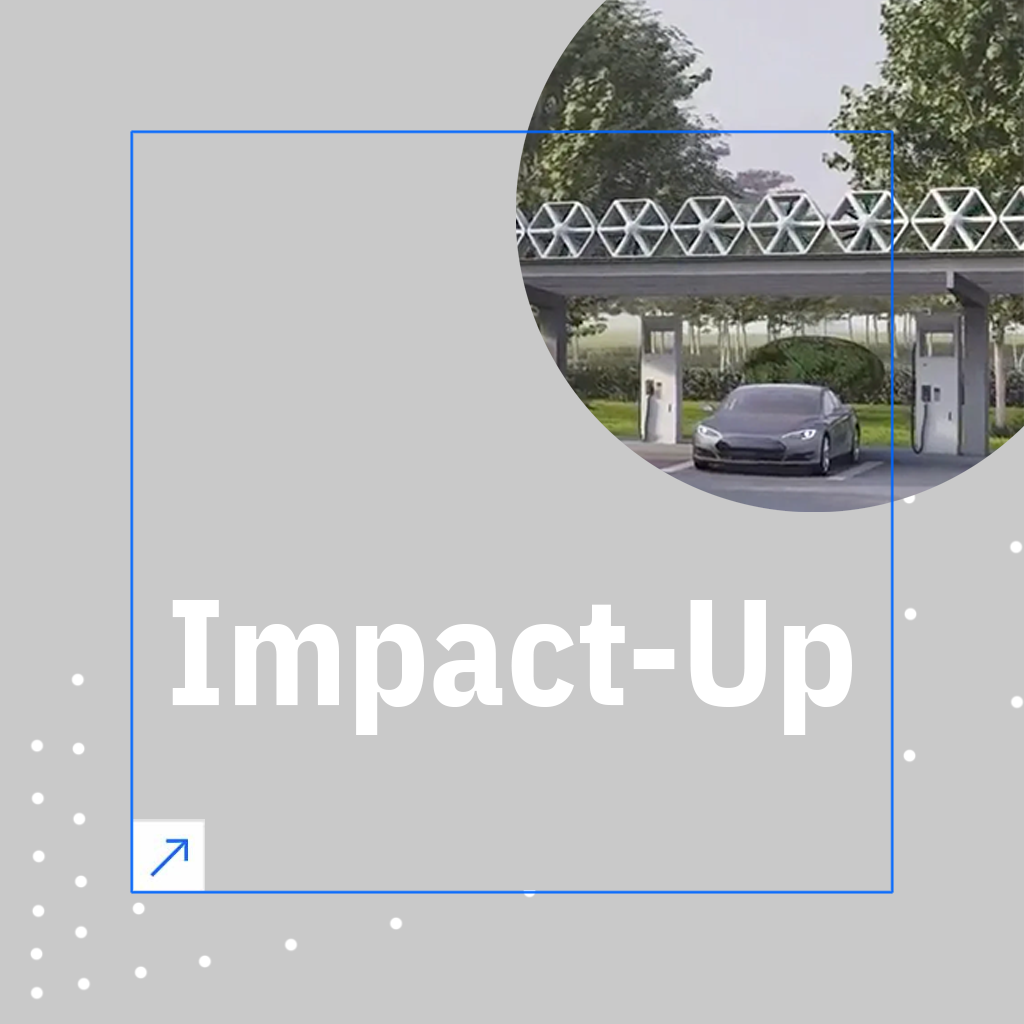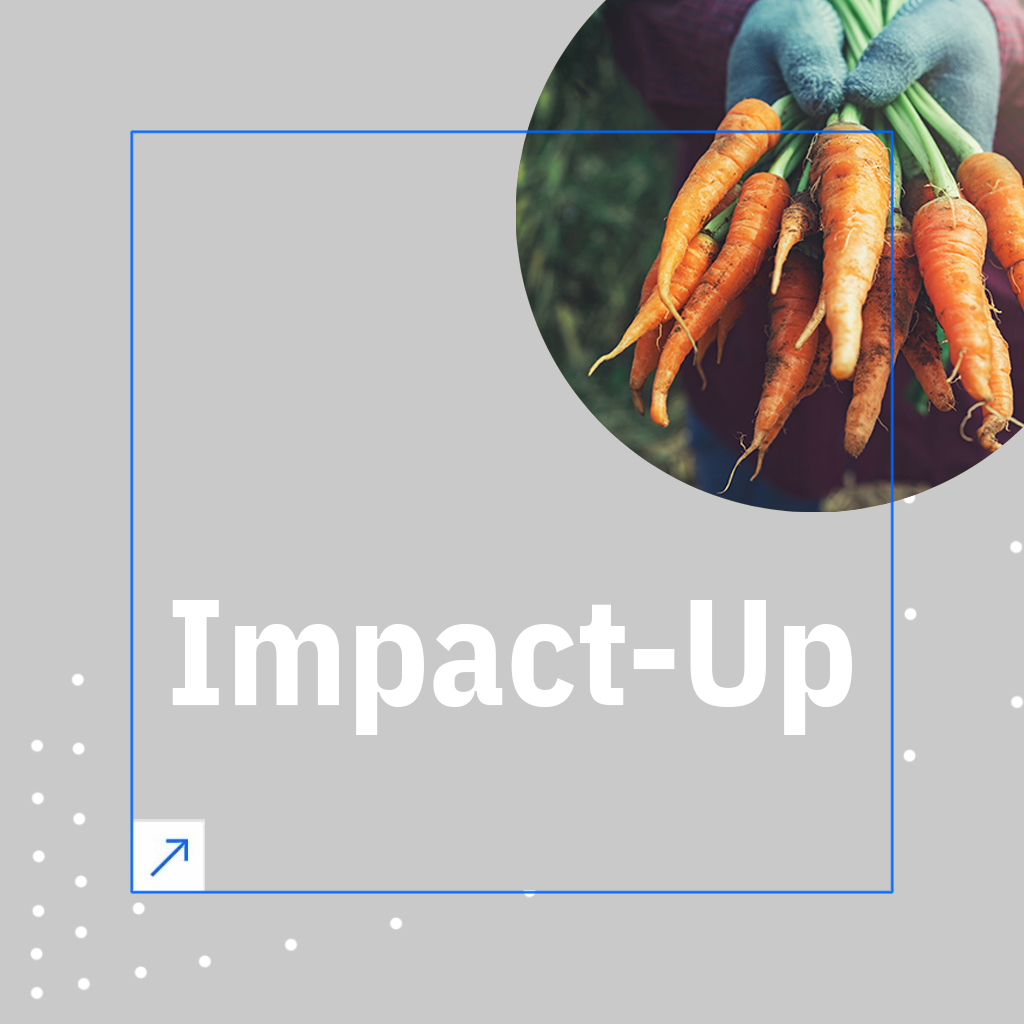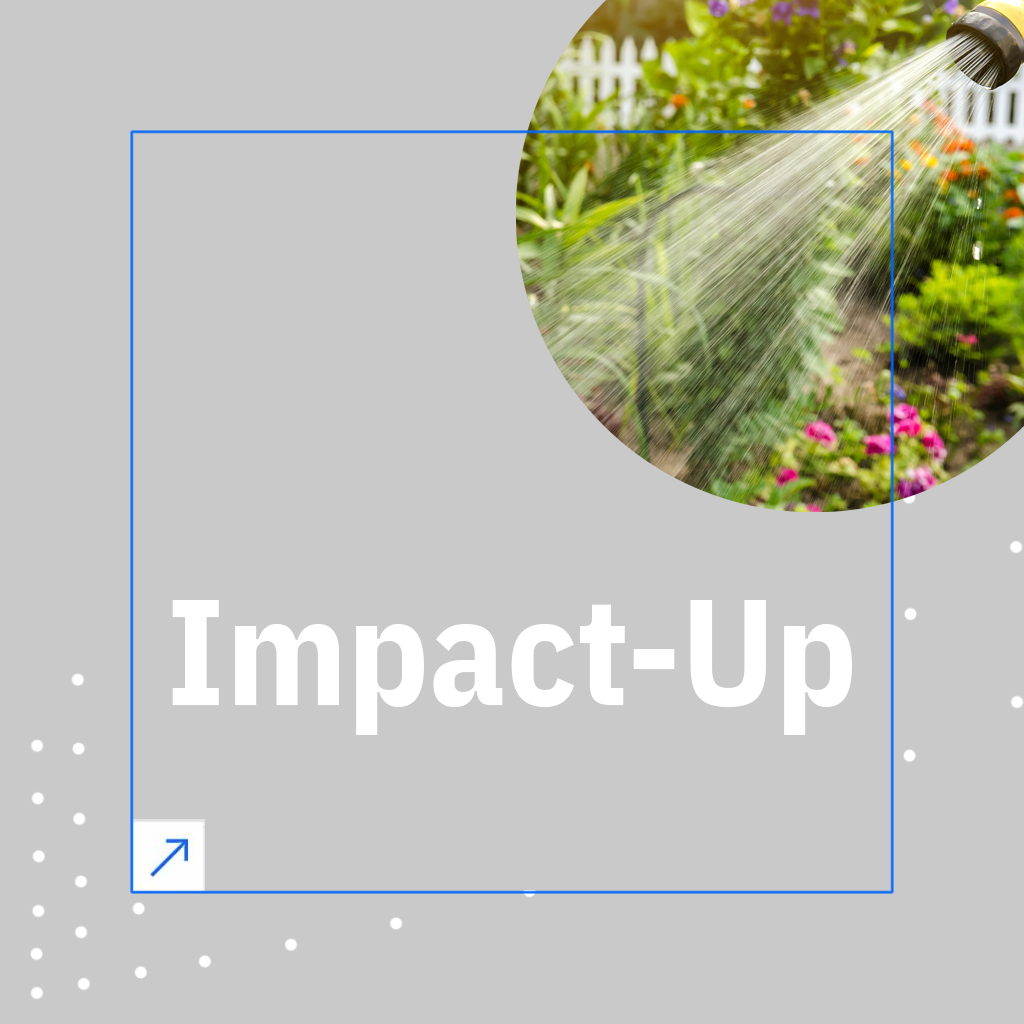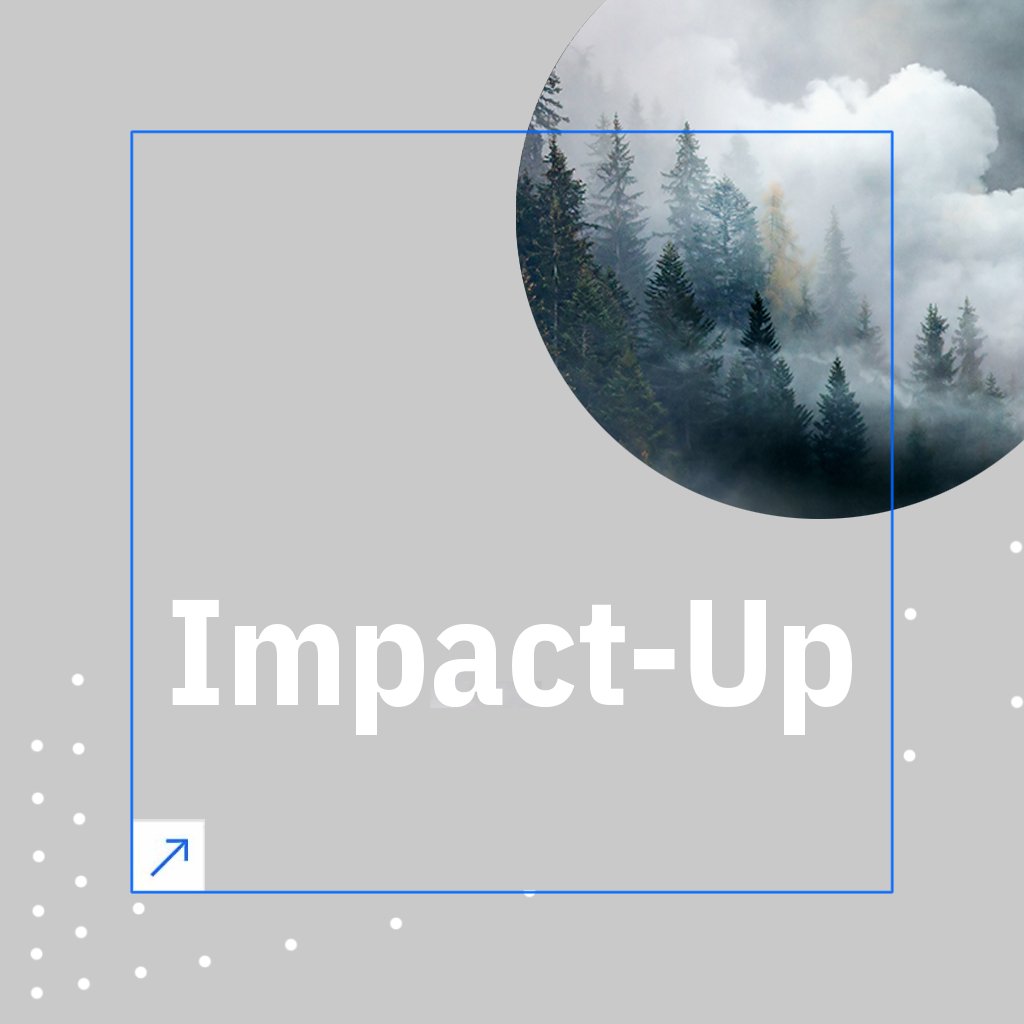Navigating the path between business and sustainability with BAE Boats
- 0.5
- 1
- 1.25
- 1.5
- 1.75
- 2
Speaker 1: Impact Up.
Suzanne Livingston: Hi, and welcome to the Impact Up Podcast. Here you'll hear stories of how entrepreneurs and business leaders are using technology for social good. My name is Suzanne Livingston, and I'm the Vice President of Engineering at IBM Sustainability Software. Today you'll be hearing an interview between our host, Daryl Pereira, and Robyn and Logan from Bae Boats. They're talking about building a sustainable business from the grounds up, where sustainability is at the core of what they do.
Daryl Pereira: Welcome everybody. My name is Daryl Pereira. I'm a content strategist here at IBM, and really excited today to be joined by Robyn and Logan from Bae Boat. Hey there.
Robyn: Hi.
Logan: Hi there.
Robyn: Thanks so much for having us today.
Daryl Pereira: All right. It's great to have you both. Great. To just kick things off, to hear a little bit about your journey to where you got to where you are today. So first maybe tell us a little bit about what Bae Boats is and how you got to this point.
Logan: So we're an electric boat rental company based in Alameda in California on the Oakland Estuary. And so we rent out boats to folks that want to go out and have fun, enjoy themselves on the water. How we got started is pretty straightforward. I've worked for large companies for two decades and had it kind of always thought that it would be fun to be an entrepreneur. And so threw lots of different ideas at Robyn over the years and we had gone out and actually experienced renting an electric boat in another location and I kind of said, " Well, hey, I think this could be something that would be really good and could work really well in the estuary." I wonder why nobody's doing it. For those of you that aren't familiar with the estuary, but it's perfect, I think underutilized body of water that sits between Alameda and Oakland, protected from a lot of the weather and like I think that this idea would work here and threw it out to Robyn, and her first response was, " Well write a business plan and then come back and talk to me later." So I did, and fast- forward, spoke to a bunch of marinas and she came down to where we ended up having our office and kind of stay in her shop and she could kind of see it and appreciate it and got behind it 110%. And to make a very, very long story short, that was kind of the origins of how Bae Boats got started, but there's a lot more to kind of fill in the middle. Maybe Robyn can jump in and share some of that.
Robyn: Yeah, so it was the summer of 2020, so it was kind of the midst of the pandemic and we have three children, so we were obviously looking for fun, creative things to do outside with them. We did a lot of hiking and biking. So when we opened Bae Boats, we started planning in the October of 2020 and we launched in January of 2021. So when we opened with our first boat, it was one of the first activities for many people that they were doing in the middle of the pandemic or with their loved ones. And there were a lot of multi- generational families that were coming together and having their first experience post COVID together. And so it was wonderful to see the families having fun together, enjoying being out on the water, picking a meal usually or celebrating fun events. And so those were the early days of when we launched, and when we opened with our one boat, we thought, " Well, if we fail at this, we have a boat for our family." And so there was really no downside, and we learned very quickly that people loved it and had an incredible time on the water. And so I brokered a deal with a company in Pennsylvania that had two used electric boats, Duffy's, and then we purchased our fourth boats from Newport. And that was kind of the first six months of opening Bae Boats.
Logan: It was a lot in a fairly short period of time, but it was also a period where we were all going through the pandemic. And so life looked a little bit different. We all had maybe a little more time on our hands than we do normally. And so we kind of look back and think about it really kind of being a silver lining from that period where so much was in flux, and it gave us an opportunity to try something new and different. And we kind of laugh that if we were trying to start it today, I don't know if we would be able to do it because our lives are so much busier than they were then. But thank goodness. But we did because we're having a lot of fun with it and we think we've definitely found a community and a set of folks that really enjoyed heading out enjoying Bae Boats and what we do.
Robyn: And when we first launched too, I mean, there was a steep learning curve for everything. We had to find our insurance, we had to find our location, we had to order our first boat, we had to develop a website. I've never built a website before. And so learned very quickly how difficult it is to add plugins and to code, but learned and did a lot of research online and had a lot of 2: 00 planning sessions and stuff like that. So I think that the other thing that was really wonderful is that during the pandemic, a lot of us kind of, as Logan said, he'd always wanted to start a company. And so for us it was something really creative that we could dive into together and really keep our minds busy. And it was something that was wonderful for our kids to see and be part of as well.
Daryl Pereira: It's really amazing that you're able to, in the heart of the pandemic, that was a time somewhat economic turmoil. There was a lot of businesses trying to figure out how to survive. There was a lot of businesses trying to figure out how they could adapt, but the fact that you're able to take that moment and to turn it into something, I think that really shows your entrepreneurial spirit or what it took to, maybe there was a slight opening that allowed that entrepreneurial spirit that you have to come through. For those folks that don't know, just a little bit more in terms of the electric boats that you are using and what those boats are, and just a little bit about that whole electric boat space.
Logan: So we have seven boats in our fleet now, and six of those seven are called Duffy's. So Duffy's are built by a company down in Southern California called Duffield Marine. In the US, kind of one of the pioneers in the electric boat space. And so I kind refer to our boats and picnic boats. They have a little five horsepower electric motor that is powered by 16 watt lead acid batteries. So similar to the batteries that you'd have in your car or a golf cart. And they plug into the dock box, standard 25, 30 amp or 50 amp outlets that most marinas operate with throughout the US. And so our boats are all 21 feet long, they're eight, nine feet wide, they hold up 10, 11, 12 folks. Coast Guard, maximum for them is 12, and people will rent them for all sorts of occasions, but usually celebrating something, so going out and celebrating a birthday or grandparents are in town and you want to take the family out for a fun activity or corporate event, networking and folks will take the boat out and cruise for two, three or four hours. Duffield Marine has been building these for 50 years, and a couple of companies have kind of spun off from them with the similar concept. So these certainly aren't high performance, go at your top speed about six, seven miles an hour. I'm not an expert on this, but it was shared with us that the individual, the gentleman that founded Duffy, literally the first electric boat was an old sailboat and he kind of took the components from a golf cart, so literally the motor and the batteries and stuck it in the sailboat hole, and the first electric boat Duffy was born. I think cruising around Balboa Island and Newport Harbor down in Southern California. Obviously a lot of innovation has occurred just in what they do and how they build their boats, but we found them to be a great partner in product. We also have the newest addition to our fleet. It's a boat Fantail, so built by a company called Vision Marine, similar concept, but actually the first boat in our fleet that it is not using lead acid batteries. And so it's the most technologically advanced. So we are excited because we're starting, we're using technology that's not new, but it's certainly I think provides a really compelling experience. So we always say that we're a mission- driven customer experience company. So folks head out, have this really cool unique experience, but hey, by the way, it's also sustainable and you're out right on an electric boat. So you're not taking away from the environment that you're enjoying, the whole reason why you're there in the first place, you're actually being kind of net neutral potentially even improving the environment. And that's certainly central and one of the tenets that drives a lot of what we do.
Daryl Pereira: So it's really interesting the fact that you're using electric boats on the estuary to preserve that estuary, but it's not necessarily that that's the main selling point, or there's some benefits that come with being electric and operating electric boats. Is that correct?
Robyn: Yeah, absolutely. So One of the really wonderful things is that Logan and I, as we were starting BAE Boats, we want to leave the estuary and the environment the same way, if not, even better than we found it, right? And that's the hope is that with these boats, they're very quiet and they don't emit any fumes or anything that's going to pollute the estuary or harm the wildlife. And so that piece of it is wonderful and it's definitely one of the things that's really interesting is there's so much development happening in the electric boat space, and so there are lots of companies who are building outboard motors and other electric ferries, and there's so much technology that's kind of growing and everyone's kind of racing to come out with that in the next couple of years. So it'll be really wonderful to see just the impact that has too. There are hydrofoil boats that are coming out and there are electric jet skis. And so the hope is that in the next 10 years that you see a big shift in waterways and in that space.
Logan: Yeah, it's interesting Daryl, you kind of bring that point up. One of our customers spoke with us, we asked them a couple of questions just about how they heard about us and which kind of unpacking that question a little bit that you had. One of the questions you probably should be asking, which we don't frankly today is, " Hey, did you decide to rent with us because we're sustainable, because we're environmentally friendly, because our boats are zero emissions?" So maybe we want to add that to our booking flow, but based off of intuition and our experience, it doesn't feel like, and it doesn't seem like most of the folks that do end up heading out with us are doing so for that being their top reason. In our experience, it's really about delivering the value proposition to the customer and then, " Oh hey, we're able to also have the sustainable element to what we do and the fact that you're not creating carbon emissions by heading out and spending two, three, four hours on our boats." So when I chat with customers about, okay, so why did they choose to rent with us one price? So if you look at what the cost is of heading out renting one of our boats for the afternoon, and you were to compare it to a lot of the alternatives that you would find, if you went to go rent a boat in Lake Tahoe or some other part of the bay that was had an internal combustion motor, our rentals range between$ 3 and$ 350 for a couple of hours out on the water, and that's considerably cheaper than what the alternatives would be. She touched on also the experience. So our boats are super quiet, sometimes, I shouldn't say a lot of times, but sometimes people will rent our boats and I don't think they know that they're electric and they get out on them and they turn the boat on, they're like, " Wait, it's really quiet. Is it electric?" And we're like, " Well, yes it is." And that kind gives us a whole opportunity to have this conversation and to have you a little bit of education around it. But You've ever been out Lake Tahoe and you rented a boat to go out tubing, or whatever activity. When you're out, it's really noisy, and that engine is usually kind of stinky, and it's not conducive to like, " Hey, let's sit down and have a conversation." And everyone that heads up on our boats appreciates having the chance to interact with whoever they're heading out with, right? It's just a different environment to head out and enjoy the people that are important in your life. And to have a venue that's maybe a little different for having that conversation and you can do it with no background noise, no fumes, and add on top of that, they're super easy to operate. They don't go very fast. So top speed is six, seven miles an hour, so that anyone pretty quickly can kind of get comfortable and I think meets what had been an unmet market need. Frankly, we didn't fully appreciate this when we got started, but if you look, a lot of companies within the marine services environment are catering to your hardcore fishermen, taking people out on fishing charters or people who want a really high performance boat and want to go really fast up in various lakes. Nobody was looking at, okay, well just for the occasional, casual person that just wants to go out and just have a fun unique experience on the water, nobody was meeting that need, or at least certainly here in the Bay Area. And I think there are a lot of places throughout the country where that need's not getting met. And somebody went out with us not too long ago, said, " Well, you really kind of made this idiot- proof." And we said, well, we want to create, and A lot of thought has gone into the experience from kind of start to finish to make sure that folks can kind of come out, get on the water and first and foremost a safe way, but also in a way that they're going to have a lot of fun with whoever they're heading out with. And all of that is completely separate from, it doesn't directly tie into, " Hey, and by the way, it's sustainable and environmentally friendly." But then when you add that element to it, I think it becomes certainly a powerful value proposition to someone looking for something to do.
Daryl Pereira: That's really fascinating on many levels, but especially like you're saying this idea of business opportunity, in terms of unmet needs, those needs, you couldn't have met those needs arguably without electric boats and without having access to boats that are renewable. But I think quite often businesses will sometimes look at, " Well, okay, we're interested in the environment, that side of it, we've got our core business here, let's do some schemes on the periphery of that that will help the environment." Meanwhile, you've got this, I think what's the thing that stands out with the model that you have that I could, the core of your business model is the idea that you have this environmental context to what you're doing. But a big part of that is around it's pure business at the end of it, the experience, it's the idea of being able to offer at a affordable cost. I'm guessing things like maybe even maintenance and some of other aspects that you have to deal with when you're dealing with internal combustion engine boats, those go away when we get into, not necessarily go away but diminish in the electric space.
Logan: That's all spot on. I was an environmental sciences, that's what I studied in college. And if you look today, climate change, the kind of politics and I would say the number of businesses and individuals who acknowledge and who are inaudible, human cause carbon emissions that are changing our environment, where we are today is certainly not where we need to be, but we made a lot of progress. We worked 20 years ago. 20 years ago, there were a number of companies, a number of politicians who completely disregarded and thought that climate change was not something that was real and that was happening. And kind of fast- forward, I think we've all seen just the intensity of storms and we've seen how there are starting to become some tangible changes. I mean, water levels are rising, right? Ocean levels are rising. There's instable fact that we can all kind of see now that you say, " Okay, well things are changing." So the dialogue is starting to change. I do think we're going to see that continue and go even further. But for us, it has been, I think, just a benefit to us personally knowing that this is kind of part of our ethos, part of what we want to bring and create. But as we all kind of continue to see, I think sustainability and decarbonization become more and more a focal point for individuals. It's only I think going to be helpful for us from a marketing perspective to continue to be able to lean even further and further into that. But at least thus far, it hasn't been, I think, the primary reason why our customers end up choosing us. And it hasn't been something that we've leaned on as our primary means of, " Hey, this is why you should head out with us." Although it's certainly been one of the factors that we point out when the opportunity arises.
Daryl Pereira: And then in terms of where the industry's heading, especially around this idea of electric boats and the technology and that side of it, like you say, it's great to hear it started with these golf carts in a sailing boat, and now we're at this point where we are now. I know you mentioned lead acid batteries given way to other materials, and obviously a big part of any kind of EVs is the degree to which you think of storage. Where do you see the actual technology and electric boats? Where do you see that heading over the next few years?
Logan: I don't want to pretend say that we've got the crystal ball on it, but so lithium batteries. So lithium and saltwater don't mix very well. And so there's been a lot of work that I would say and research that's gone into developing batteries, lithium batteries that can be operated in a salt water environment and operated safely over the last few years. And so at seventh boat, the newest boat in our fleet, it's our first boat that has lithium batteries, and we kind of always sit back and we say we think the next decade is going to be for boats in the marine industry, what the last decade has been for vehicles on the road that we all drive. And there's been a lot of startups that are out actively developing their products, their boats today, their engines, their outboards today, that are right on the precipice of developing boats that can't go toe- to- toe with their internal combustion counterparts and competitors. And there's been a lot of venture funding that's going into the space as well. And so it's been really exciting for us to kind of have a seat. We're not actively right developing those boats, but we're certainly in a position where we want to continue to grow. We want to continue to expand our fleet, we want to potentially add locations. And as we think about all of that, keeping a pulse on, hey, what's going on in the industry and who are going to be players that end up having the products that are the most successful, it's really exciting for us to be sitting here and saying, " Hey, this is an industry that we're involved with that we're going to have the ability to be a part of as things we think evolve a lot here in the near term, in the very foreseeable future."
Daryl Pereira: That's interesting to hear. And I guess it's arguable also that we could say that the innovation that we expect to see in something like electric vehicles on water is the innovation moves a lot faster than you might be seeing for the internal combustion engine on that side where things, there'll be changes here and there, but it feels like it's what happens in other areas of electrification as it relates to transport, that the innovation, especially at this point in time, is happening so much faster, whether it's the engines, whether it's the storage, like you said, even materials that are used for batteries, et cetera.
Logan: So if you think about your regular passenger vehicle that went from kind of internal combustion to many electric options today and right using lithium batteries. So I'd think that you're going to have something very similar like the recreational voting market. So the average motor is buying and taken out to spend the day out on the lake or on the bay or in the harbor. I think you're going to see those engines transitioning from internal combustion to lithium batteries, being the made power source here over the next decade. Now you mentioned when you think larger scale about, okay, well hey, we've got, Oakland is one of the largest container ship, ports, certainly on the West Coast and the scale and the amount of time that those boats are kind of out in the water doing a crossing, it's probably going to be hydrogen fuel cells that end up, I think being the next step in evolution in that space. Because just from a density perspective, you're able to store, unlike a denser amount of energy to where you could actually make it plausible to take all those that are primarily powered by diesel today. So not a very clean way of moving all those goods that are going back and forth across the ocean to a much cleaner, carbon friendly way of transporting the goods.
Daryl Pereira: Hats off to you during the pandemic, you're able to build on the back of the pandemic. You're able to build a business coming out of that. In terms of advice that you would have for other business owners and startups and around if they're interested in the sustainability space or even around these kind of areas, it could even be around electric transportation. What advice would you provide?
Robyn: Be patient with yourself. There's always more to learn, and every year we kind of look back, especially our busy season is from May to October, so we kind of take the fall in the winter to go back and say, " Well, what can we do better?" And what can we learn and how can we have better practices in place? And be patient with yourself because there are always, especially as an entrepreneur or any small business owner, there are always a million things to be done. And so just be patient with yourself and ask a lot of questions. Lean on people who've done it before or like Logan mentioned, we're not experts in what's happening within the electric boat space and the larger industry. And so ask a lot of questions, read a lot, absorb as much as you can, and I think all of those things will help you to have a better foundation for whatever you're building.
Logan: We kind of touched on it a little bit earlier, but a couple pieces of advice. So one is I don't think the customer wants to buy sustainability. If you're leading with, " Hey, we've got some sustainable product you can use." But in all the ways that the customer uses it, it's less good than the alternative. It's not sustainable, I don't think you're going to get very far, with that product, I think what you really have to start with is, okay, what's the problem that the customer has you are trying to develop a solution for, and develop a solution that's better? And if you can deliver that solution in a sustainable fashion, that's kind of the holy grail. There's no emitting carbon, if we just take a step back, there's no cost of that today. And you can make arguments about, " Okay, well where do we go in the future?" And is there going to be carbon passports and are we going to be more as a society intentional about that? But today, all of the sustainability steps that companies are taking are all voluntary. And for that matter, even at the government level that countries are taking are all voluntary. There's no kind of enforcement mechanism, penalizing company or country. They're not adhering to whatever their sustainability targets and metrics are. And so A company that embraces sustainability and is going to not contribute to emissions and our carbon footprint, the company's carbon footprint on the environment, you have to internalize that and make it be part of what you're building, but not this is what I'm selling to you, customer, but if you deliver all those things that we talked about earlier in terms of value proposition and oh by the way, you're able to check that box, then that's right how I think collectively we're all going to move things forward while we figure out how do we, just from a regulatory perspective, we get more intentional about building carbon emissions and the cost sales emissions into all the things that we do and products that we use every day. And then just a couple other things. One, she was a great partner, so I'm very fortunate that my business partner and it's my wife, and we've had a lot of fun doing this together, but it's really, really difficult to start a company, and you're going to face a lot of adversity. When we first were getting started, I literally called every marina that operated on the Oakland estuary to ask them about, " Hey, would you be open to us OP? Would you have space for something like what we're thinking about doing?" And the vast majority just ignored me completely. A couple were interested in having a conversation, but were not very helpful, and were actually kind of discouraging. And it was like, oh, geez. And you kind of would get a little-
Robyn: Expect to hear no a lot.
Logan: Yeah. Kind of go-
Robyn: And get comfortable with that and say, " Okay, well how do I solve the problem?" Expect to fail a lot, and then do better and learn and grow and build, right? That's what we've done the last three years. It's like you learn, you build, you grow, you fail, you learn again and you just keep going. And I was going to have one more thing for anyone who's starting a company and they want to create in a space that is sustainable. I think it's even as simple as you paper trail that you're leaving behind, everything that we do we have QR codes for, which a lot of businesses do now, but when we first opened, that was kind of a newer concept. And so just little things that you can do as a company to kind of not have as much waste. We use a lot of spray bottles, obviously to clean our boats, and so obviously getting refillable jugs that we can use and just reuse over and over again so we're not throwing away a lot of plastic. There are always things that you can kind of do to be thoughtful about the environment and be more mindful about that.
Daryl Pereira: That's the secret to partnership in a marriage, I'm guessing.
Logan: Well, that's right.
Robyn: We'll leave it there.
Logan: We'll leave it there.
Daryl Pereira: That's impressive, what you guys have been able to achieve in such a short period, your comments in terms of you're going to hear nos, you have to look for solutions, don't accept the nos. Then move through those, as well as what you're doing in terms of how you continually think about the operations and how you can cut down a waste in those areas. That's all powerful stuff. So like any startup, your time is incredibly valuable and you've donated that time today to help explain your story and to share a little bit about what it takes to do what you do, and to run a very successful electric boat company here in California. Definitely wish you all the best. Well, I'm sure will be future success and maybe a global mission at some point, but at least I'm sure you'll be part of this growing area that you've highlighted for us today. We all see how EVs are taking over our streets in all forms of electric transportation, but that degree to which and what can happen on water, as well as some of the finer points to that, which I'll say I wasn't aware of before we had this conversation. So appreciate, and thank you both for taking the time out and we'll be sharing more details. If anyone wants to check out Bae Boats, go check them out and look for them coming to a court near you sometime soon.
Logan: Thanks, Daryl.
Suzanne Livingston: What we just heard about Bae Boats such an interesting story. To start a new business during COVID is an incredible accomplishment and a lot of bravery, but also starting one where they're centered around sustainability is a part of what they deliver and a part of what their customers experience day- to- day. What was unique about this for you, Daryl?
Daryl Pereira: One thing that stood out for me from this particular story is this overlap between this idea that sustainability, sometimes we don't see the real business potential of sustainability. We think of it as something I know see many businesses that might put sustainability, maybe they put it into their marketing organization, maybe they look at side projects that they can run with their employees. The fact that for Bae Boats, this was fundamental to their business model. There's a big part of it, this idea of being electric, and it feels like that piece of it is an important part of the story.
Suzanne Livingston: Unbelievable. Because what we're seeing with the data that we collect from the different organizations we work with is that when you're putting sustainability in the center of your operations, you're not just spending money on sustainability initiatives, you're actually growing your business. So time after time, we're seeing examples where companies who are leading the way, they're trailblazers and sustainability initiatives are the ones who are driving more growth in their bottom lines and in their top lines. So what we've done with IBM is we've said, " Okay, let's look at sustainability not as just a top level initiative that a group is going to go solve for a company, but let's look at what we can do at the operational levels of our organization, the supply chains, the manufacturing systems, the real estate that you're using, the facilities that you have, the asset management technologies that you're using, the assets that you're running, all the way to the pumps, the compressors, everything in your organization down to the lowest levels of operations, and where do you have waste and where can you reduce that waste and where can you improve efficiency?" So that's been a key driver to the success of many businesses as well as government agencies who are trying to focus on sustainability initiatives.
Daryl Pereira: And then as we're talking about this, as this is business, where do you see this sitting and who are the stakeholders involved within our clients when you're working with these folks? Because obviously you are approaching this in terms of driving these efficiencies, using IT systems and that side of it. But then when it comes to the business potential and how you realize some of those pieces, what areas of business are you working with?
Suzanne Livingston: Certainly the role that is most commonly associated with sustainability is the Chief Sustainability Officer. Not every company has selected someone to be in that role, but we have seen that as a growing profile over the last few years. I would say the two that probably have the most influence over sustainability initiatives, even if there is a sustainability officer, are folks who are like your CIOs or your COOs, between information and operations, it's a lot of what you need in order to just get a baseline. Imagine you're a manufacturing company, you want to know what is my footprint today? How much carbon am I emitting into the environment today? How do I know that off of the systems that I have? So I'm going to work with my Chief Information Officer who's going to have access to the data that runs all of the systems, and I'm going to work with the Chief Operations Officer on identifying the areas of operations that are the most likely offenders, but then also use the data to identify areas where we can make improvements. So I think between those three roles, we see a lot more progress happening. Certainly CEOs get involved, certainly lines of business get involved, especially when they are sustainability driven lines of business. For example, some of the retailers we work with have a mission to share with consumers that the products that they're buying are sustainable. And so they go through a tremendous effort to collect data about the process of creating that product all the way from raw materials or even raw ingredients through to the final product. And so those heads of lines of business, those ones are really focused on sustainability from their perspective, either to grow consumer adoption of their products or share that type of information, but definitely data and definitely operations. Those are the two areas that can make the most impact in the sustainability initiatives for an organization. Thanks so much for having me and for this great story. This is the Impact Up Podcast. Catch us next time.
DESCRIPTION
In this episode of Impact-Up, host Daryl Pereira welcomes Robyn and Logan, the visionary entrepreneurs behind Bae Boats, an electric boat rental business in Alameda, CA. Joined by Suzanne Livingston, VP of Engineering at IBM's Sustainability Software, this insightful conversation delves into the world of sustainable entrepreneurship and the journey of Bay Boats from a pandemic-born idea to a thriving reality.
Gain valuable insights into the challenges they faced and the lessons they learned, including the importance of patience and continuous learning in entrepreneurship. In this episode we explore the perspective of how sustainable solutions can be a key factor in business models through solving consumer problems, rather than being used as a sales tactic. Join us for an inspiring conversation that showcases the power of innovative technology, resilience, and sustainable practices in shaping the future of boating and beyond.
Learn more about BAE Boats on their website: https://www.baeboats.com/
Today's Host
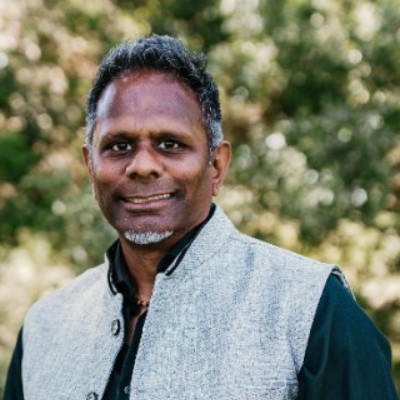
Daryl Pereira
Today's Guests
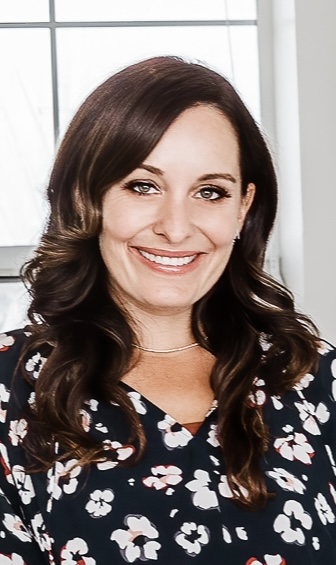
Robyn Taylor

Logan Taylor
